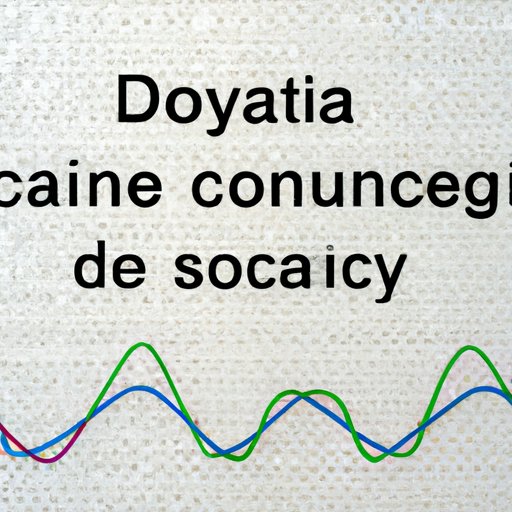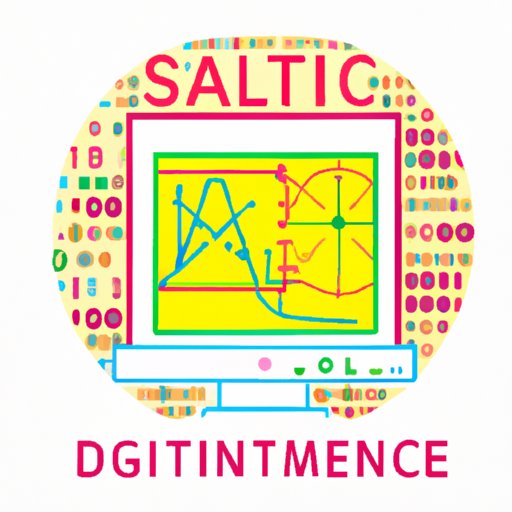Introduction
Computational science is a field of study that combines mathematics, computer science, and other disciplines to solve complex problems. It involves using computers to analyze data, create models, and simulate real-world scenarios. By utilizing the power of computers, researchers can quickly process large amounts of data and uncover valuable insights.
Benefits of Computational Science
The use of computers in scientific research offers numerous advantages over traditional methods. For starters, computational science is significantly more efficient than manual calculations. According to a study published in the journal Science, researchers found that “computer simulations are up to 10 million times faster than manual computations.” This increased speed allows scientists to complete tasks much quicker, enabling them to make faster progress in their research.
In addition to being faster, computational science is also more accurate. Computers can process data with greater precision than humans, eliminating potential errors that may arise from manual calculations. Furthermore, using computers to analyze data can result in cost savings since they require less time and resources than traditional methods.
Applications of Computational Science
The applications of computational science are vast and span across many disciplines. One of the most common uses of this technology is for data analysis. By leveraging powerful algorithms, computers can identify patterns in large datasets and uncover hidden insights. This can help researchers better understand certain phenomena or develop new theories.
Computational science can also be used for modeling and simulation. Researchers can create computer models that replicate real-world scenarios, such as weather patterns or economic trends. These simulations can be used to test hypotheses or explore different outcomes before making decisions. Additionally, computers can be used for image processing, which involves manipulating digital images to detect features or improve resolution.
Finally, computational science plays an important role in the field of artificial intelligence (AI). AI systems rely on computers to process large amounts of data and generate predictions or recommendations. This technology is increasingly being used in areas such as healthcare, finance, and transportation.

Role of Computational Science in Data Analysis
Data analysis is one of the primary uses of computational science, and it can be used to extract meaningful information from large datasets. Computers can be used to identify correlations between variables, identify outliers, and uncover hidden patterns. In addition, computers can be used to visualize complex processes, allowing researchers to better understand how different elements interact.
Moreover, computers can automate certain tasks, such as cleaning datasets or performing calculations. This can save researchers time and effort, allowing them to focus on the more important aspects of their work. Overall, computers play an essential role in extracting valuable insights from data.

Impact of Computational Science on Research
The use of computational science has had a profound impact on scientific research. By utilizing the power of computers, researchers can expand their horizons and explore new ideas. Computers can be used to analyze massive datasets, which can lead to groundbreaking discoveries.
Furthermore, computational science has facilitated collaboration between researchers from different fields. By leveraging the power of computers, researchers from different disciplines can come together to tackle complex problems. Finally, the use of computers has accelerated the pace of research, allowing scientists to achieve results much faster than with traditional methods.
Comparison of Computational Science to Traditional Scientific Methods
When compared to traditional scientific methods, computational science offers several advantages. First, computers are much faster than humans, allowing researchers to complete tasks quickly. Additionally, computers are more precise than manual calculations, resulting in fewer errors. Finally, computers can automate tedious tasks, saving researchers time and effort.
However, traditional scientific methods still have their place in today’s world. Manual calculations can provide valuable insight into complex problems, and experiments can reveal information that cannot be found by computers alone. Furthermore, some researchers may prefer to use traditional methods due to their familiarity with them.
Future of Computational Science
According to a report by the World Economic Forum, computational science is expected to continue to have a major impact on the world. It is predicted that the use of computers will become increasingly prevalent in areas such as healthcare, finance, and transportation. Additionally, computers are expected to become even more powerful, allowing researchers to tackle larger and more complex problems.
However, there are still challenges facing computational science. For example, computers can struggle with tasks that require creativity or intuition, such as writing or designing. Additionally, computers need to be properly programmed in order to function correctly, which can be a time-consuming process.
Conclusion
Overall, computational science has revolutionized the way scientists approach research. By leveraging the power of computers, researchers can analyze large datasets, create simulations, and automate tedious tasks. Additionally, the use of computers has enabled researchers to collaborate more easily and accelerate the pace of research. While computational science still has its limitations, it is clear that this technology will continue to play a major role in scientific research in the years to come.
(Note: Is this article not meeting your expectations? Do you have knowledge or insights to share? Unlock new opportunities and expand your reach by joining our authors team. Click Registration to join us and share your expertise with our readers.)
